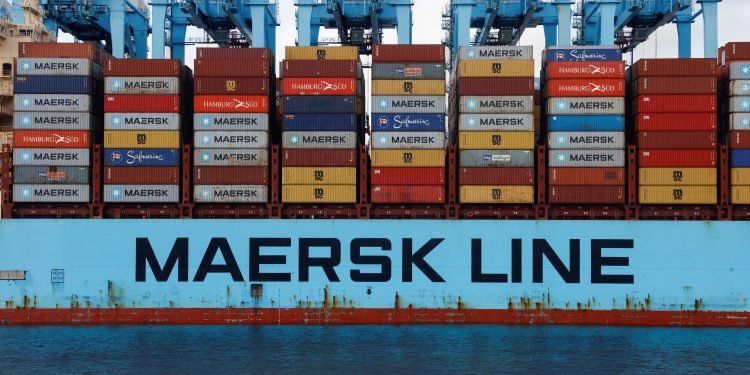Maersk, the world’s largest container shipping company, is facing significant challenges as disruptions in the Red Sea are cascading through their entire global network [WorldCargo News]. A recent fire onboard a Maersk container ship tragically claimed the life of one crew member, raising safety concerns while also causing delays in a crucial shipping lane [WorldCargo News].
The incident, coupled with ongoing congestion at Red Sea ports, has thrown Maersk’s meticulously planned schedules into disarray. The company is now forced to reroute vessels, leading to longer transit times and missed connections at other ports around the world.
“The Red Sea disruptions are having a domino effect on our entire network,” admitted a Maersk spokesperson. “We are working around the clock to adjust schedules and minimize the impact on our customers, but delays are inevitable.”
The news comes at a particularly frustrating time for shippers already grappling with rising fuel costs and ongoing labor disputes at some ports [Container News]. The disruptions at Maersk threaten to further strain supply chains and potentially lead to price hikes for consumers.
While Maersk is a dominant player, the knock-on effects of their delays will undoubtedly be felt by other ocean cargo companies as well. The incident serves as a stark reminder of the interconnectedness of the global shipping industry and the vulnerability to disruptions at any single point.
Looking ahead, industry experts are watching closely to see how quickly Maersk can recover and how other companies adapt to the changing landscape. The coming weeks will be crucial in determining the full impact of the Red Sea disruptions and their potential ripple effects on global trade.





















